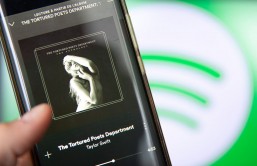South Korean health authorities are concerned when previously recovered coronavirus patients in the area experience re-infection.
Health experts in South Korea are keeping tabs on the increasing number of former patients that are getting retested as positive for the COVID-19, after making a recovery. As the Korea Centers for Disease Control and Prevention notice that the 292 former cases are getting re-infected and then testing negative, that means recovery from infection. But officials are stressing that the pattern does not necessarily reflect a re-occurrence of active infection.
In a recent news conference, they made it clear that re-infection will befall all former patients.
According to Committee head Oh Myoung-don, all the attributed positive test results following recovery to "dead," or inactive virus components leftover in the tissue, this was mentioned by multiple outlets based in South Korea which was reported last Wednesday.
He added, "RNA fragments still can exist in a cell even if the virus is inactivated." The government-funded media organization Yonhap News Agency confirmed that "it is more likely that those who tested positive again picked up virus RNA that has already been inactivated and that the coronavirus biological interactions with human DNA strands show its lack of ability to create chronic infections."
Increases in the positive retests in April has concerned those dealing with it, more cases of re-infections is giving rise to more questions. About two weeks past, the KCDC found 163 patients who tested positive the second time for the virus after their recovery and subsequent release from quarantine. These diagnoses were part of the 2% of recovered cases in the population said authorities. Last Wednesday, there were 2.7% as second-time positive cases, and 3.4% were children.
Also read: Coronavirus Outbreak Second Wave? Recovered Wuhan Patients Testing Positive Again
Based on the average time between recovery and the release of the patient is 13.5 days, or at the longest at 35 days. In 137 cases that were checked, 61 of the patients had mild symptoms and 72 were asymptomatic, with the last four under examination. A conclusion is the disease control center determined there were no secondary infections seen in subsequent cases.
South Korea has 263 cases that are considered positive that were formerly recovered patients, noted the KCDC as it investigates the resurgence of COVID-19.
Sources added that contact tracing of re-positive cases are important to find out what happened which may resulted to the resurgence of the virus. An April 26 report said,"No new case has yet been confirmed that resulted from exposure to the re-positive cases (during the period in which they were re-positive). The contacts are still under monitoring."
As of Wednesday morning, there are 10,761 coronavirus cases in the country and 246 deaths based on the Johns Hopkins University tracker. Reports from the Korean Department of Health and KCDC has shown less than 15 people have tested positive for the first time each day since April 19.
How it happened that recovered coronavirus patient is re-infected by dead-virus remnants need to be studied and analyzed why it happens.
Related article: Coronavirus Reinfection Possible, Can Be Fatal a Second Time








